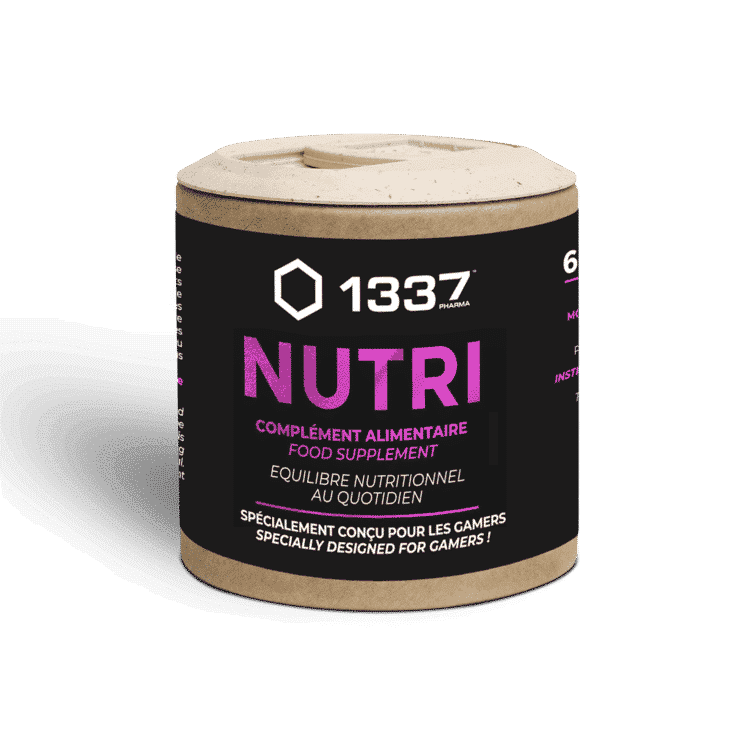VITAMIN K2
Ingredient
What is Vitamin K2?
Where does it come from?
Why is it used?
What are the benefits?
Bibliography
What is Vitamin K2?
There are two main forms of vitamin K:
Vitamin K1 (phylloquinone): found in plant foods like leafy green vegetables.
Vitamin K2 (menaquinone): found in foods of animal origin and fermented foods (DiNicolantonio et al., 2015)
Vitamin K2 can be divided into several different subtypes. The most important are MK-4 and MK-7.
Where does it come from?
Vitamin K was discovered in 1929 as an essential nutrient for blood clotting. The initial discovery was reported in a German scientific journal, where it was called “Koagulationsvitamin”. This is where the K in vitamin K comes from (Newman & Shearer, 1998). It was also discovered by dentist Weston Price, who traveled the world in the early 20th century to study the relationship between diet and disease in different populations.
Why is it used?
Vitamin K plays an essential role in blood clotting, heart health, and bone health.
Indeed, one of its most important functions is to regulate calcium deposition. In other words, it promotes bone calcification and prevents calcification of blood vessels and kidneys. (Schwalfenberg, 2017; Theuwissen et al., 2012)
• May help prevent heart disease
Calcium buildup in the arteries around the heart is a significant risk factor for heart disease (Anderson et al., nd; Kramer et al., 2013)
Anything that can reduce this calcium buildup will help prevent heart disease. Vitamin K is believed to help by preventing calcium from depositing in your arteries (Theuwissen et al., 2012)
In a study over a period of 7 to 10 years, people with the highest vitamin K2 intake were 52% less likely to develop calcification of the arteries and had a 57% lower risk of dying from heart disease. (Geleijnse et al., 2004)
Another study in 16,057 women found that participants with the highest vitamin K2 intake had a much lower risk of heart disease – for every 10 mcg of K2 consumed per day, the risk of heart disease was reduced 9% (Gast et al., 2009)
• May help improve bone health and reduce the risk of osteoporosis
Osteoporosis – which translates to “porous bone” – is a common problem in Western countries.
It occurs especially in older women and greatly increases the risk of fractures.
As mentioned above, vitamin K2 plays a vital role in the metabolism of calcium, which is the most important mineral for bones and teeth.
Vitamin K2 activates the calcium-binding actions of two proteins – matrix protein GLA and osteocalcin, which help build and maintain bone (Eden & Coviello, 2022)
Interestingly, there is also substantial evidence, from controlled studies, that vitamin K2 may provide major bone health benefits.
A 3-year study of 244 postmenopausal women found that those who took vitamin K2 supplements had a much slower age-related decline in bone mineral density (Knapen et al., 2013)
Long-term studies in Japanese women have observed similar benefits, although very high doses have been used in these cases. Only one of the 13 studies showed no significant improvement.
Seven of these trials, which took fractures into account, showed that vitamin K2 reduced vertebral fractures by 60%, hip fractures by 77% and all non-vertebral fractures by 81% (Cockayne et al., 2006)
In line with these findings, vitamin K supplements are officially recommended for preventing and treating osteoporosis in Japan (Ishida, 2008).

Discover other plants used in our products
Bibliography
1. Anderson, JJB, Kruszka, B., Delaney, JAC, He, K., Burke, GL, Alonso, A., Bild, DE, Budoff, M., & Michos, ED (nd). Calcium Intake From Diet and Supplements and the Risk of Coronary Artery Calcification and its Progression Among Older Adults : 10‐Year Follow‐up of the Multi‐Ethnic Study of Atherosclerosis (MESA) . Journal of the American Heart Association, 5(10), e003815. https://doi.org/10.1161/JAHA.116.003815
2. Cockayne, S., Adamson, J., Lanham-New, S., Shearer, MJ, Gilbody, S., & Torgerson, DJ (2006). Vitamin K and the prevention of fractures: Systematic review and meta-analysis of randomized controlled trials. Archives of Internal Medicine, 166(12), 1256-1261. https://doi.org/10.1001/archinte.166.12.1256
3. DiNicolantonio, JJ, Bhutani, J., & O’Keefe, JH (2015). The health benefits of vitamin K. Open Heart , 2(1), e000300. https://doi.org/10.1136/openhrt-2015-000300
4. Eden, RE, & Coviello, JM (2022). Vitamin K Deficiency. In StatPearls. StatPearls Publishing. http://www.ncbi.nlm.nih.gov/books/NBK536983/
5. Gast, GCM, de Roos, NM, Sluijs, I., Bots, ML, Beulens, JWJ, Geleijnse, JM, Witteman, JC, Grobbee, DE, Peeters, PHM, & van der Schouw, YT (2009). A high menaquinone intake reduces the incidence of coronary heart disease. Nutrition, Metabolism, and Cardiovascular Diseases: NMCD, 19(7), 504-510. https://doi.org/10.1016/j.numecd.2008.10.004
6. Geleijnse, JM, Vermeer, C., Grobbee, DE, Schurgers, LJ, Knapen, MHJ, van der Meer, IM, Hofman, A., & Witteman, JCM (2004). Dietary intake of menaquinone is associated with a reduced risk of coronary heart disease: The Rotterdam Study. The Journal of Nutrition, 134(11), 3100-3105. https://doi.org/10.1093/jn/134.11.3100
7. Ishida, Y. (2008).[Vitamin K2] . Clinical Calcium , 18(10), 1476‐1482. https://doi.org/CliCa081014761482
8. Knapen, MHJ, Drummen, NE, Smit, E., Vermeer, C., & Theuwissen, E. (2013). Three-year low-dose menaquinone-7 supplementation helps decrease bone loss in healthy postmenopausal women. Osteoporosis International, 24(9), 2499-2507. https://doi.org/10.1007/s00198-013-2325-6
9. Kramer, CK, Zinman, B., Gross, JL, Canani, LH, Rodrigues, TC, Azevedo, MJ, & Retnakaran, R. (2013). Coronary artery calcium score prediction of all cause mortality and cardiovascular events in people with type 2 diabetes: Systematic review and meta-analysis . BMJ (Clinical Research Ed.), 346, f1654. https://doi.org/10.1136/bmj.f1654
10. Newman, P., & Shearer, MJ (1998). Vitamin K Metabolism. In PJ Quinn & VE Kagan (Eds.), Fat-Soluble Vitamins (pp. 455-488). US Springers. https://doi.org/10.1007/978-1-4899-1789-8_19
11. Schwalfenberg, GK (2017). Vitamins K1 and K2: The Emerging Group of Vitamins Required for Human Health. Journal of Nutrition and Metabolism, 2017, 6254836. https://doi.org/10.1155/2017/6254836
12. Theuwissen, E., Smit, E., & Vermeer, C. (2012). The role of vitamin K in soft-tissue calcification. Advances in Nutrition (Bethesda, Md.), 3(2), 166-173. https://doi.org/10.3945/an.111.001628

